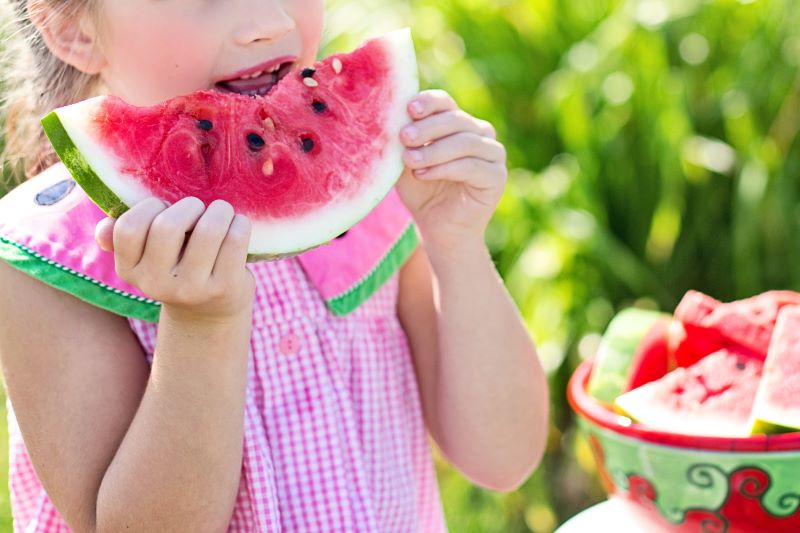
A healthy gut has been linked to good behavior and overall health in children. Childhood is an important period of physical and behavioral growth in your child. Keeping your child healthy will help boost their performance inside the classroom and out.
Recent research suggests that gut health can contribute to a person’s mood. A published in the European Neuropsychopharmacology journal highlighted some ways the diet can affect the brain. These studies showed that healthier diets were associated with greater feelings of happiness and improved mood.
Here are 5 ways to improve your child's gut health:
1. Feed them Whole Grains
Whole grains are filled with fiber, iron, and non-digestible carbohydrates that are great for gut health. The carbohydrates from whole grains are broken down in the large intestine and feed the good bacteria in the gut.
Healthy whole grain foods include:
-
Whole-grain bread
-
Brown rice
-
Whole-wheat pasta
-
Oatmeal
-
Quinoa
2. Feed them a lot of fruits and vegetables
Fruits and vegetables are a great source of nutrients for the gut. They are high in fiber which helps stimulate the growth of good bacteria in the gut. Research has shown that a diet high in fruits in vegetables reduces the risk of bad bacteria in the gut. In addition to being high in fiber, you’ll find that many fruits and vegetables are rich in prebiotics, probiotics, and polyphenols which are discussed below.
3. Include a combination of prebiotics and probiotics in their diet
Prebiotics help create a better environment for good bacteria in the gut to grow. Probiotics on the other hand are bacteria that help improve the overall health of the gut. The two work hand in hand towards maintaining a healthy digestive tract.
Good foods with prebiotics include:
-
Bananas
-
Apples
-
Onions
-
Whole oats
-
Asparagus
Good foods with probiotics include:
-
Tempeh
-
Sourdough bread
-
Peas
-
Sauerkraut
-
Pickles
4. Avoid the unnecessary use of antibiotics:
When antibiotics are prescribed, they come in and destroy bacteria in your gut regardless of whether that bacteria is good or bad. A Michigan Medicine study revealed that one in 10 children received unnecessary antibiotics at least once in 2016. This overuse of antibiotics increases the risk of treatment-resistant bacteria developing in the body.
5. Feed them polyphenol-rich foods
Polyphenols are compounds mostly found in plants that have many health benefits. Some health benefits include lowering cholesterol, blood pressure, and inflammation.
Good sources of polyphenols include:
-
Dark chocolate
-
Blueberries
-
Sweet cherries
-
Almonds
-
Beans
What we put into our bodies affects us both physically and mentally. A child with a happier mood will be more inclined to chase a healthy snack rather than using junk food to cope with an underlying issue. By maintaining a healthy diet, your child will feel good and ready to tackle their work in the classroom.
Is your child struggling with mental health? It's possible that there are many things to blame for this. If you found value in this article, consider reading our other articles that focus on mental health.
Mental Health and Online Learning
Education and Mental Health-how it affects your child
Reading: Amazing for Your Mental Health!
Why Kids Should Say Positive Affirmations With Online Learning
-The Genie Academy Team
Referenceshttps://www.scientificamerican.com/article/mental-health-may-depend-on-creatures-in-the-gut/
https://www.fatherly.com/health-science/the-link-between-gut-bacteria-and-your-kids-behavior-just-got-stronger/
https://www.amymyersmd.com/2017/11/antibiotics-wreak-havoc-gut/
https://www.parents.com/health/hygiene/5-ways-to-boost-your-kids-gut-health/
https://www.healthline.com/nutrition/improve-gut-bacteria





